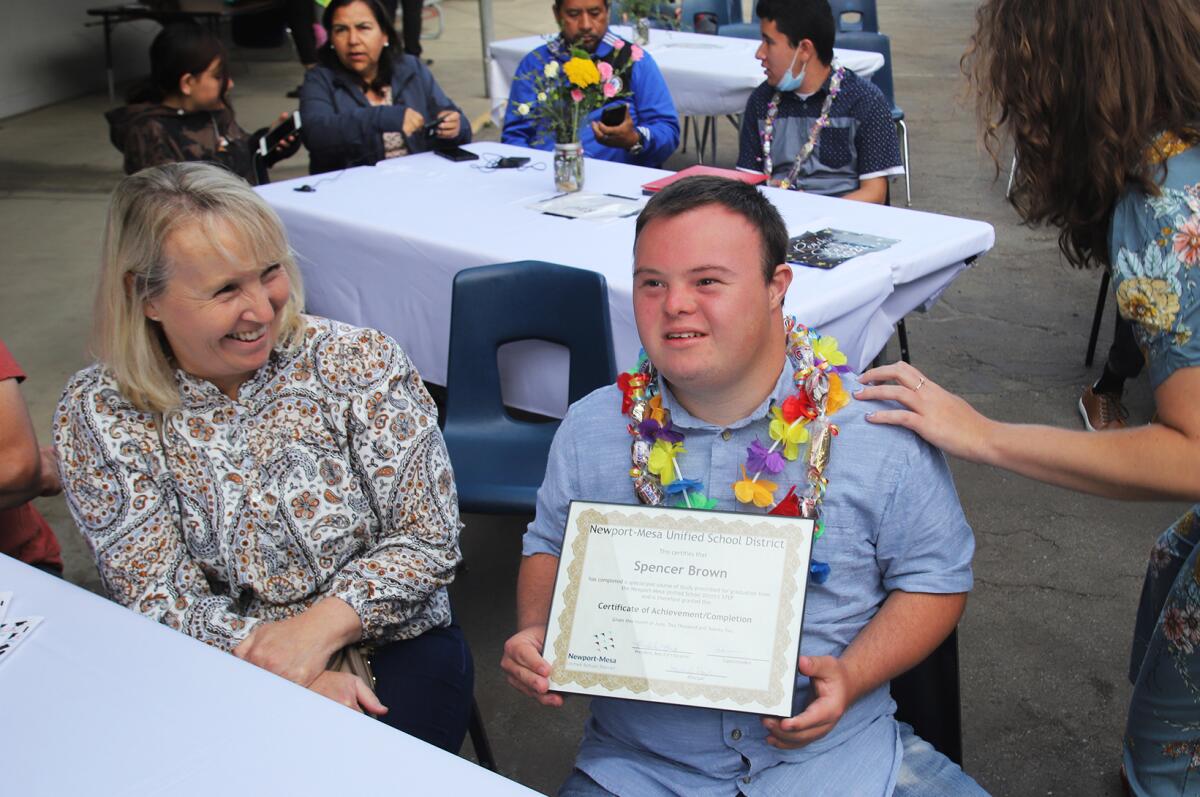Apodaca: What helps people flourish? A study has the answers to ‘the good life’

- Share via
When I was a little girl, I would often accompany my mother when she picked up my older sister from Girl Scouts. I recall being fascinated by a song the troop sang at the conclusion of every meeting.
Many of you probably know the lyrics: “Make new friends, but keep the old. One is silver and the other is gold.”
Even as a kid I was known for pestering people with an endless loop of annoying questions — possibly an early indication of my future career as a journalist. “Why?” I always wanted to know.
“Why is one silver and the other gold? Are they saying one is better than the other? Why are they different?”
At some point in my continual demands for explanations from the adults around me, my exasperated parents usually gave up trying to provide answers that satisfied my curious mind, ending the conversation with the admonishment that I was too analytical. It’s a refrain that followed me well into adulthood.
I flashed back to those childhood memories when I read recently about Harvard’s decades-long, multigenerational study on human happiness.
The Harvard Study of Adult Development began in 1938 with 724 subjects and the intention of discovering what makes people flourish. They tracked the participants’ health, work satisfaction, family situations and many other measures that we generally consider important to determining the level of contentment in life.
The study later incorporated the spouses of the original subjects, and eventually more than 1,300 descendants of the original group also participated.
A book was recently published on the study: “The Good Life: Lessons From the World’s Longest Scientific Study on Happiness,” written by the project’s current director, Robert Waldinger, and its associate director, Marc Schulz.
What did all that effort and years of research reveal?
The main conclusion was that the key ingredient in a happy, fulfilling life is — drumroll please — warm relationships.
This means that the biggest factor leading to a happy life isn’t money or status, a high-profile career, the perfect leg-to-body ratio or the really cute sweater I saw at Fashion Island (although I still want that sweater, darn it). It’s the people in our lives that we have deep connections with, who we care for and care for us back; those who we can count on to support us through challenging times.
Daily Pilot columnist Patrice Apodaca believes a new City Council rule that effectively prohibits flying the LGBTQ Pride flag outside City Hall is discriminatory.
Tellingly, the study participants who could not name one person they could call in the middle of the night if they were sick or scared were thought to be more susceptible to suffering from stress and anxiety and the negative impact on health that would follow.
Many press reports have presented the study’s findings as surprising news, as if to say, “Who knew that money can’t buy happiness?”
To which many of us would reply that, duh, we actually knew this all along.
But, to be fair, studies are often conducted that end up confirming — or at least providing evidence for — what one might instinctively believe to be true. That doesn’t make the research any less valuable. Many times we are able to glean further insights and interesting details when a rigorous academic process is applied to answering fundamental questions.
Indeed, my childhood queries about the relative value of friendships tells me I wanted a deeper understanding of their worth. It’s also telling that, although the Harvard study might be the best known, it’s far from the only research that delves into the question of what makes us happy. The topic is undeniably intriguing.
One point that I picked up on from the Harvard study, which, again, might seem obvious but is worth underscoring, is that quality matters far more than quantity. People don’t have to become social whirlwinds to be happy, and they also don’t necessarily need to have a spouse; just one close, trusted friend can make all the difference.
It’s understandable that the authors thought it important to highlight these findings, given that our society is fixated on monetary rewards and professional acclaim to the point where many of us feel pressure to sacrifice relationships on the altar of material success.
We’re also constantly bombarded by media messages and ads that suggest we’ll feel more fulfilled if we just buy a certain candy bar or a cool new car, take an unpronounceable prescription pill or choose the right insurance company. The manipulation is readily apparent, yet we fall for it again and again.
The book’s release is also timely, as it coincides with a period in which we are increasingly recognizing that isolation can be toxic. Feelings of detachment have been exacerbated by our reliance on technology, fixation with social media — despite the word “social,” these platforms have been shown to feed alienation — and by the pandemic. This has led to a distressing increase in mental health problems.
I’ll share another memory from my youth. When I was in my late teens a friend gave me a book by one of those self-styled spiritual-guru types who counseled readers to rely only on themselves, not others, for happiness.
My friend considered this unshakable wisdom, but I thought it was bunk. Decades later, I feel vindicated. We do need each other, and that’s a good thing. Be they silver or gold, relationships are the precious elements of a happy, fulfilling life.
All the latest on Orange County from Orange County.
Get our free TimesOC newsletter.
You may occasionally receive promotional content from the Daily Pilot.







